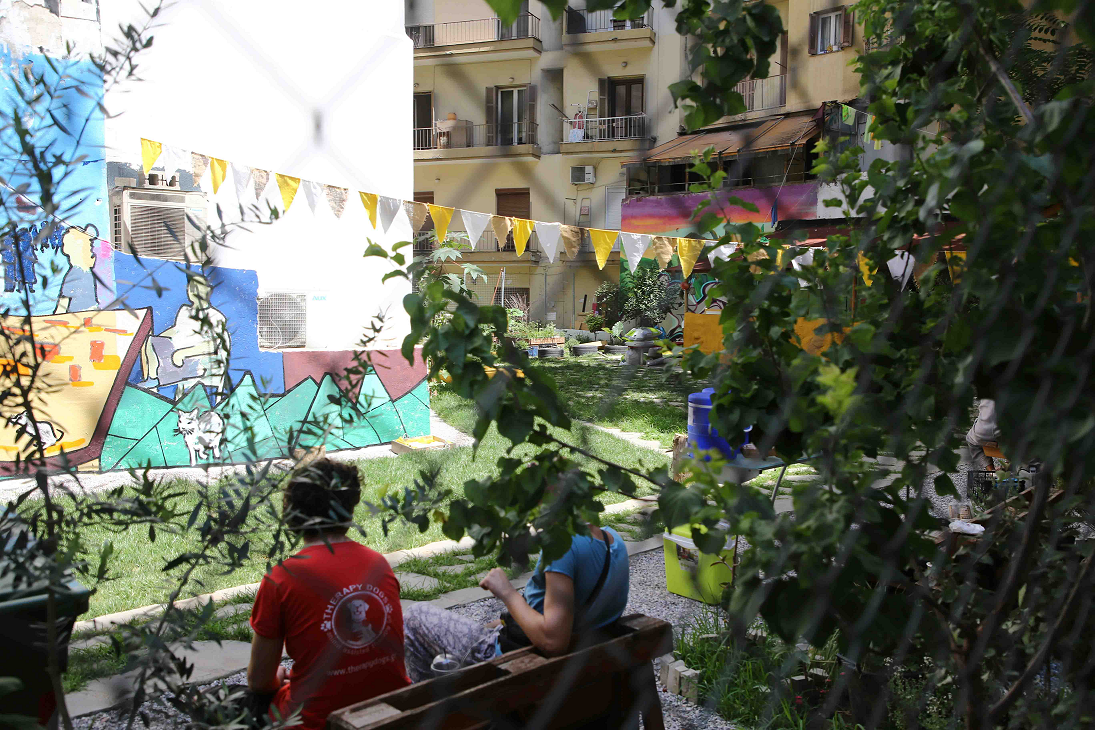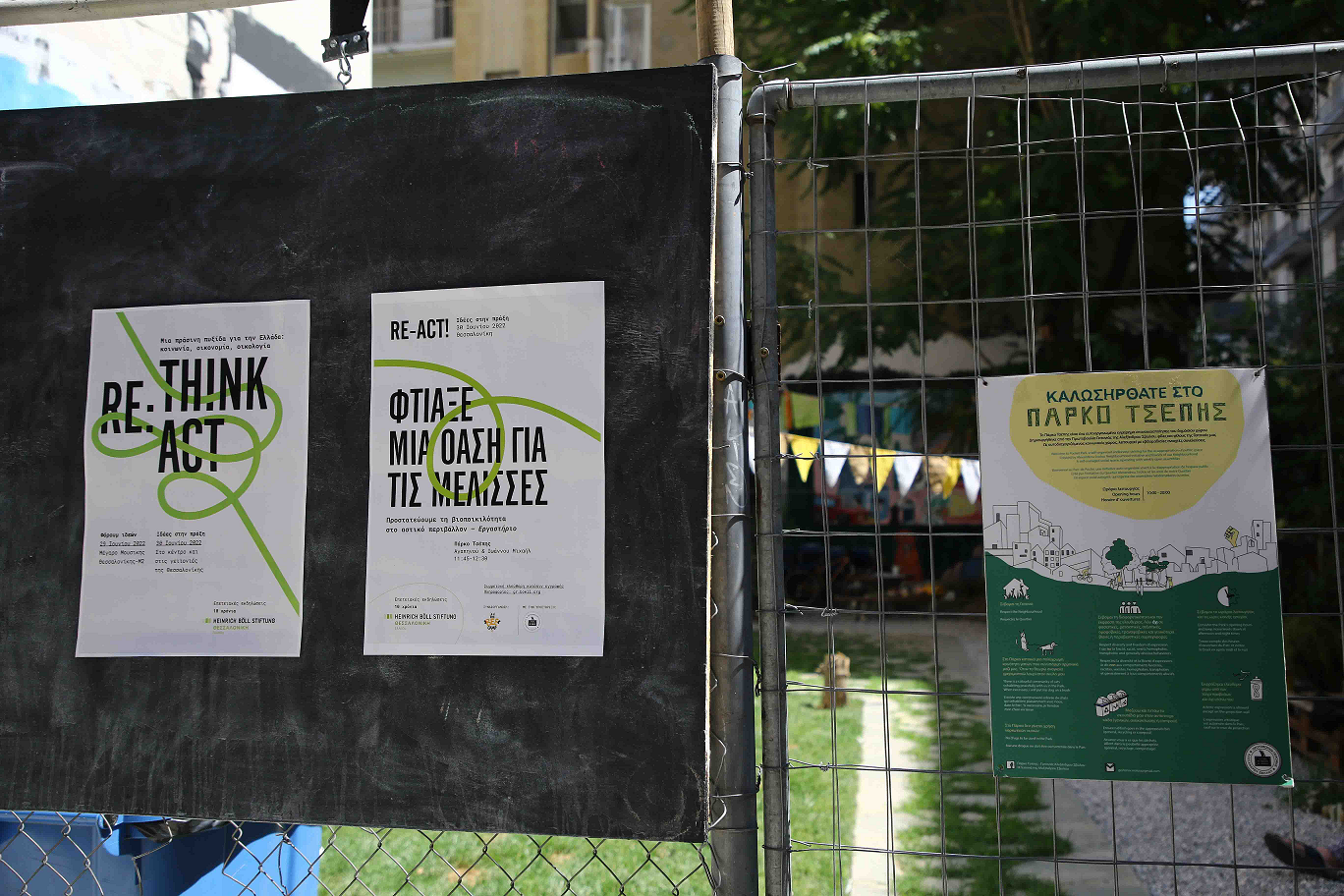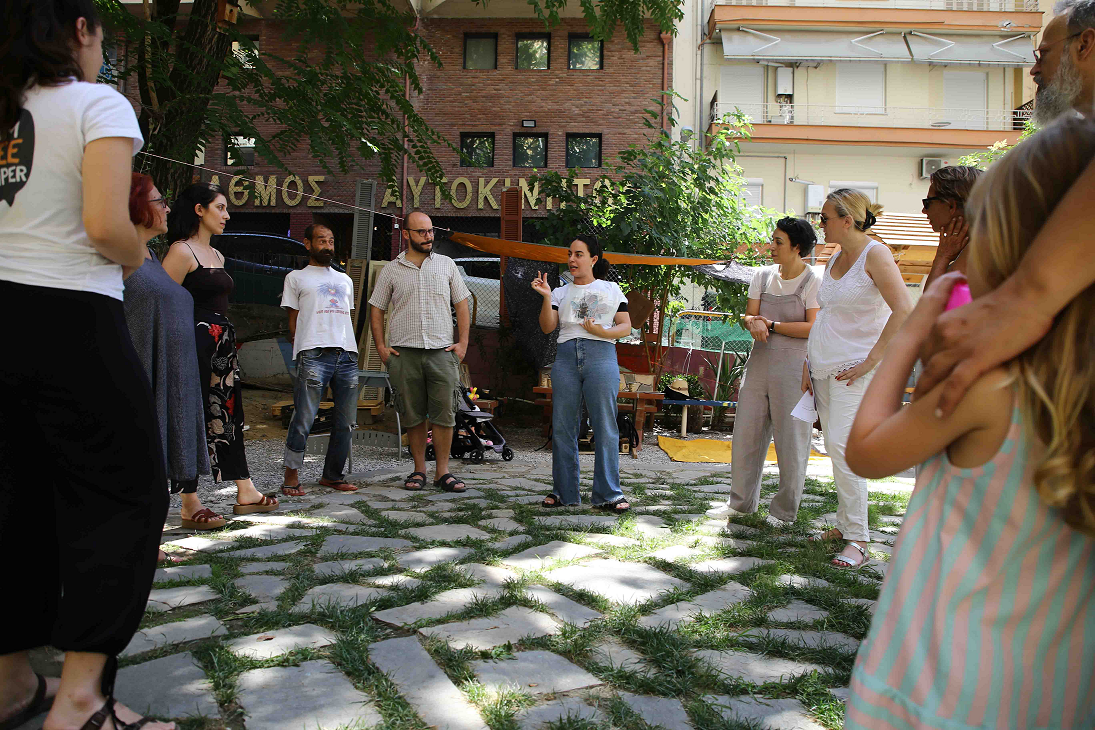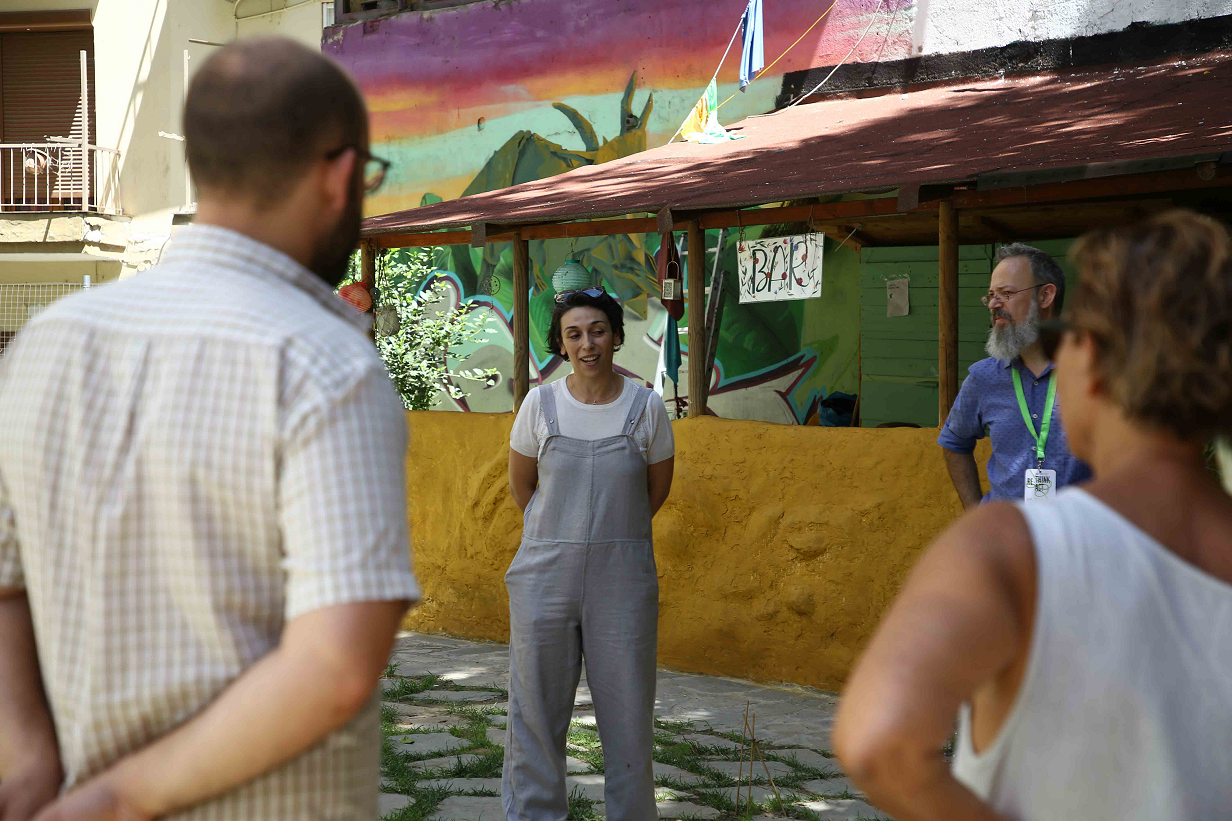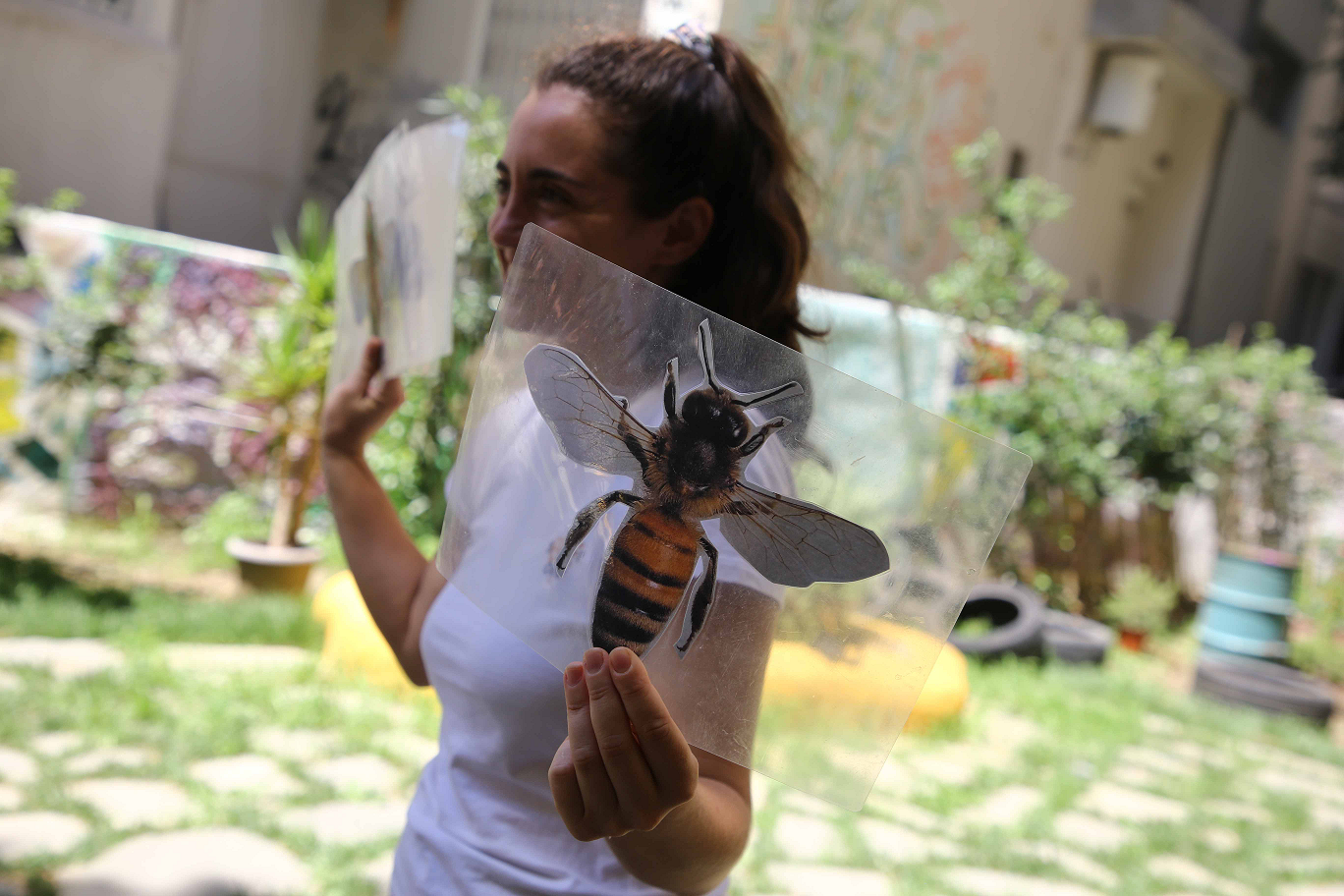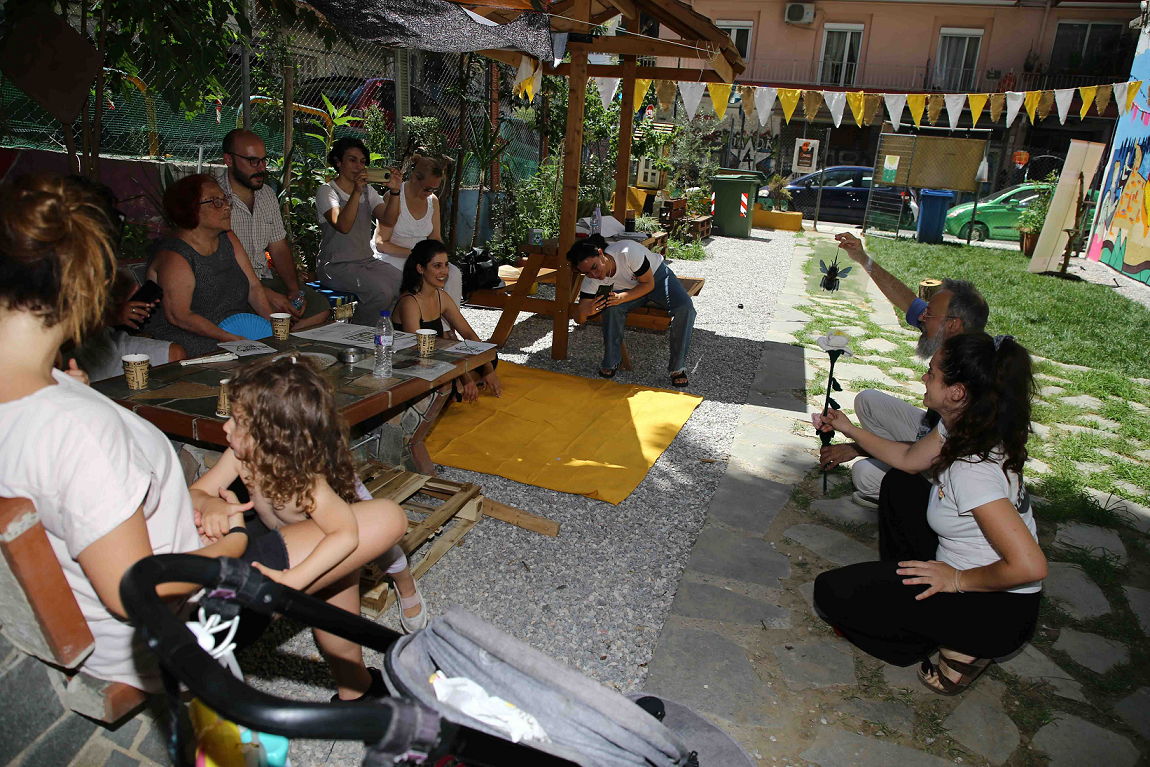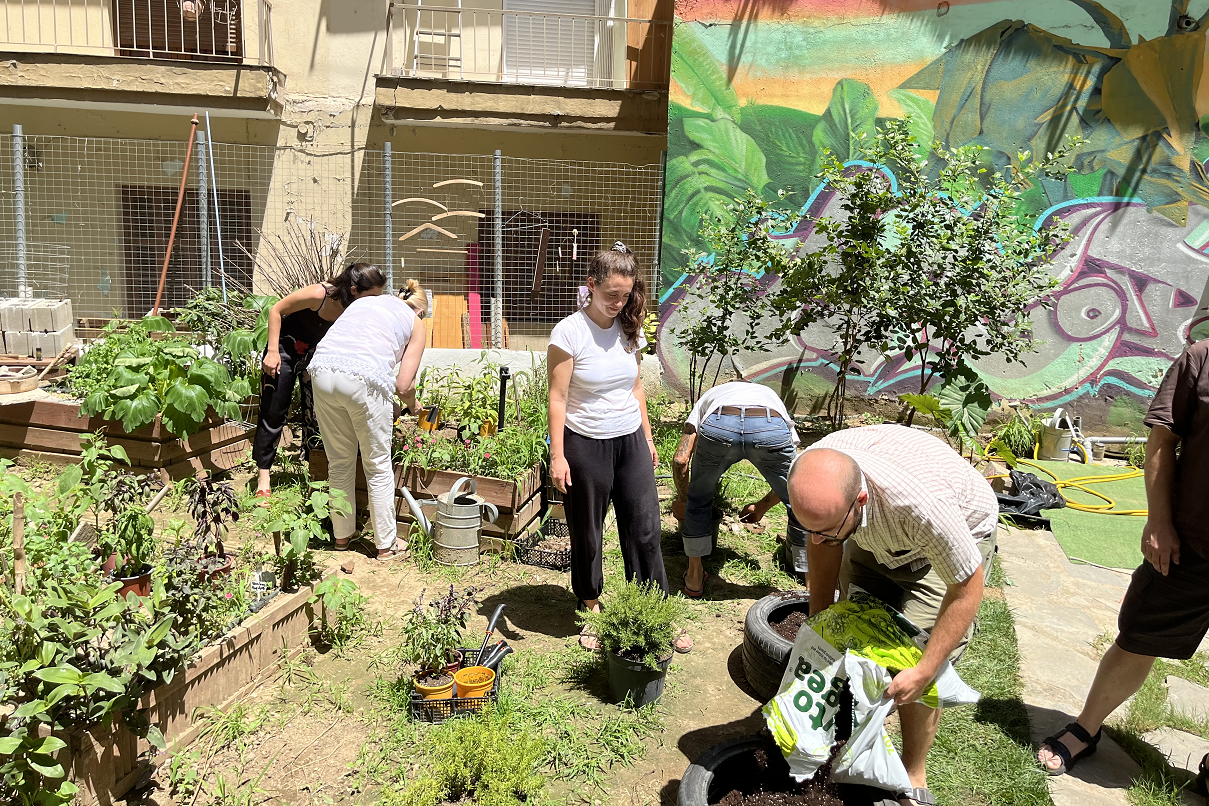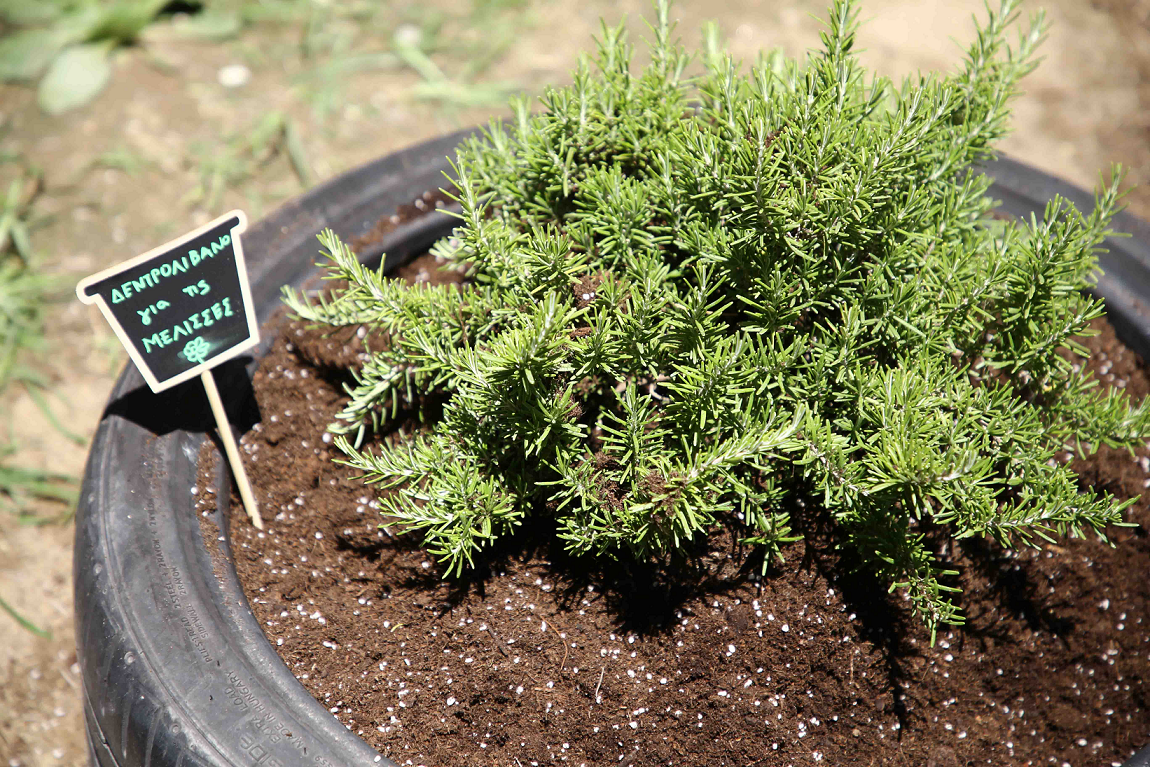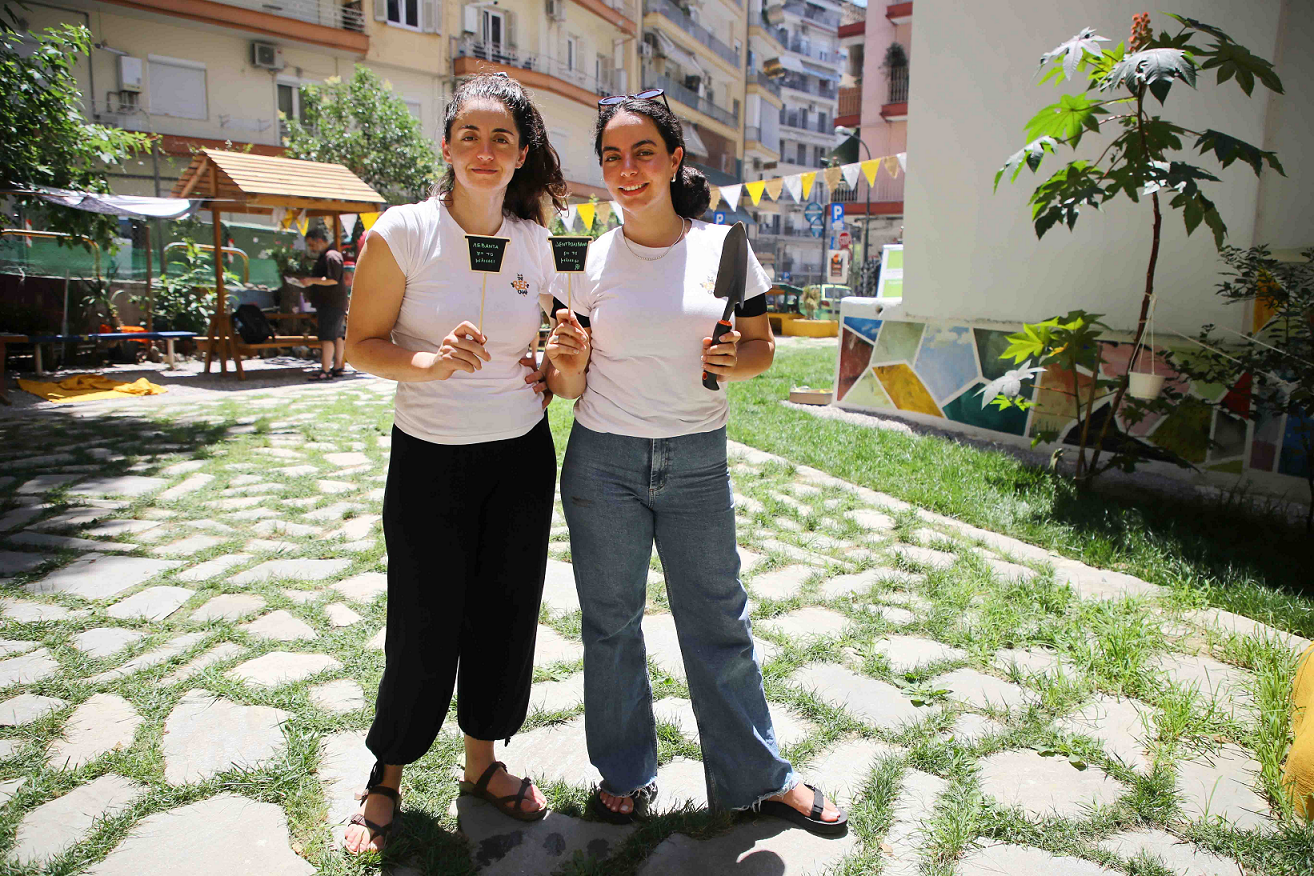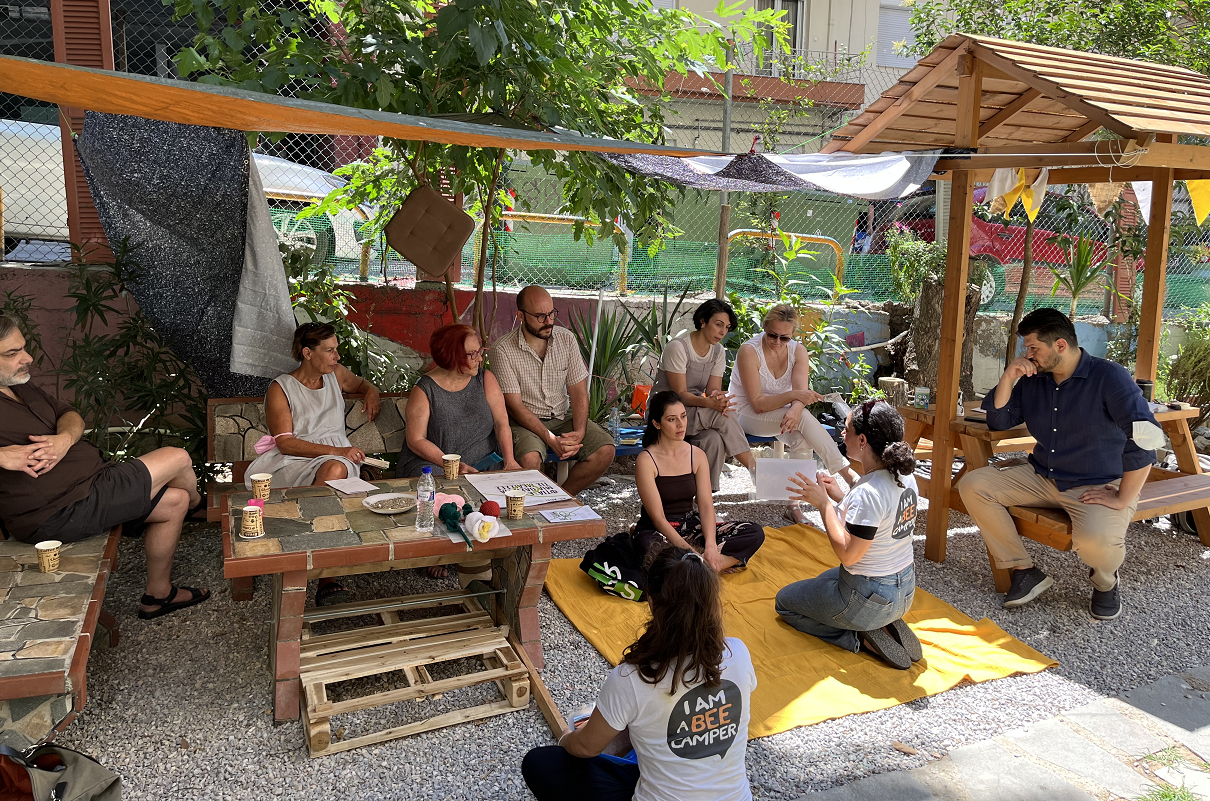Build a bee oasis
We protect biodiversity in the urban environment
Part of our anniversary events was the hands-on workshop "Build a bee oasis" - an urban intervention that transformed the pocket park on Ioannou Michail and Agapinou Street, in the neighbourhood of Alexandrou Svolou, into one of the few bee-friendly spaces in Thessaloniki. The workshop we held with the specialized team The Bee Camp aimed to learn things about these busy insects and raise awareness about the dangers that threaten them, but also to do some plantings so that they can find food.
Insects are a fundamental part of the basis of life in our world - and especially pollinating insects like bees, thanks to which we have a third of our food! However, due to industrial farming, pesticides and the loss of their habitats, their global population has declined dramatically with an alarming impact for everyone. In addition, urban areas, and more specifically Greek cities, which have little greenery and a very small variety of plants, are inhospitable places for bees, which practically cannot find flowers suitable for feeding and thus cannot survive.
The workshop was implemented by Anthi Founda and Angelina Kanellopoulou of The Bee Camp, who gave us a lot of useful information about bees and their crucial role both in ecosystems and in human nutrition. Then we jointly planted bee-friendly plants - rich in nectar and pollen - such as oregano, lavender, rosemary, basil, echinacea and sage, creating the conditions for attracting pollinating insects to the park and enhancing the biodiversity of our cities.
So, within the urban desert we have indeed created a bee oasis, reclaiming public space with a notion of urban design where all people, families and species are welcome!
